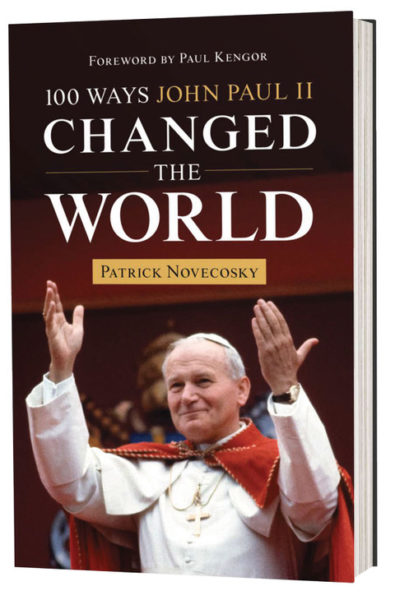MAY 18, 2009 — Pope Benedict XVI stepped into the fray of Middle East politics by endorsing a Palestinian state during his recent pilgrimage to the Holy Land.
During his May 15 farewell speech at the Tel Aviv airport, the Pope stressed the need for universal recognition of Israel’s right to exist and the Palestinians’ “right to a sovereign independent homeland.
“Let the two-state solution become a reality,” the Holy Father said, noting that six decades of bloodshed in the Holy Land has distressed him.
“No more bloodshed! No more fighting! No more terrorism! No more war!” he pleaded. “Instead, let us break the vicious circle of violence. Let there be lasting peace based on justice; let there be genuine reconciliation and healing.”
A model for peace
The impassioned speech was one of the many highlights of Pope Benedict’s May 8-15 pilgrimage to the Holy Land, which began with a four-day stop in Jordan. In many ways, his visit mirrored that of Pope John Paul II, who visited Jordan and Israel in 2000.
Pope Benedict began his journey with a stop at Jordan’s Mount Nebo, where tradition says Moses gazed out upon the Promised Land before his death.
“It is appropriate that my pilgrimage should begin on this mountain.” This holy place, he said, should remind all Christians to “undertake a daily exodus from sin and slavery to life and freedom.”
The Pope visited a mosque in the Jordanian capital of Amman before participating in vespers at St. George Melkite Cathedral. It was inspiring to see the Jordanian Christians’ affection for the Holy Father. They shouted, waved flags and sang when he entered the cathedral. The applause was almost deafening.
More than 30% of Jordan’s 109,000 Catholics piled into Amman International Stadium on May 10 for the papal Mass. The youth presence was impressive. Thousands of young people cheered and sang long before the Holy Father’s arrival. A song written especially for the papal visit — “Benvenuto Benedetto in Jordania” (Welcome to Jordan, Benedict in Italian) — rang through the crowd dozens of times throughout the morning.
In his homily, the Pope exhorted the Middle Eastern Christians to stay in the Holy Land and give testimony to Jesus in this conflict-plagued region.
“Fidelity to your Christian roots, fidelity to the Church’s mission in the Holy Land demands of each of you a particular kind of courage: the courage of conviction, born of personal faith, not mere social convention or family tradition; the courage to engage in dialogue and to work side by side with other Christians in the service of the Gospel.”
In his farewell address in Amman on May 11, the Holy Father hailed Jordan as a model for peace and religious tolerance in the Middle East.
“I would like to encourage all Jordanians, whether Christian or Muslim, to build on the firm foundations of religious tolerance that enable the members of different communities to live together in peace and mutual respect,” he said.
Jordan’s King Abdullah II has gone to great lengths to foster interreligious dialogue, the Pope said. “This spirit of openness … has contributed to Jordan’s far-sighted political initiatives to build peace throughout the Middle East.”
Two-state solution
The Holy Father wasted no time getting down to business after touching down in Israel. He called for a Palestinian state in his first speech. He went on to meet with other religious leaders, visit the Church of the Nativity in Bethlehem and the Church of the Holy Sepulchre in Jerusalem, and celebrate Mass in Nazareth for about 50,000 pilgrims.
Together with Israeli president Shimon Peres, the Pope planted an olive tree at the presidential palace as a sign of the close relationship between Jews and Christians. He called this gesture, along with meeting with Holocaust survivors at the Yad Vashem memorial, the most memorable of his pilgrimage to Israel.
“So many Jews … were brutally exterminated under a godless regime that propagated an ideology of anti-Semitism and hatred,” he said. “That appalling chapter of history must never be forgotten or denied.”
The Holy Father also met with Palestinian leader Mahmoud Abbas in the Palestinian territories. He called the security wall separating Palestinians from Israelis “one of the saddest sights for me during my visit to these lands.” Acknowledging how hard it will be to achieve lasting peace, the Pope said said he had prayed “for a future in which the peoples of the Holy Land can live together in peace and harmony without the need for such instruments of security and separation.”
Patrick Novecosky is the editor of Legatus Magazine and the founder of The Praetorium. This article was published in the June 2009 issue of Legatus Magazine. He was in Jordan for Pope Benedict’s four-day visit to that country.

